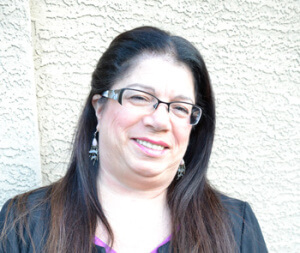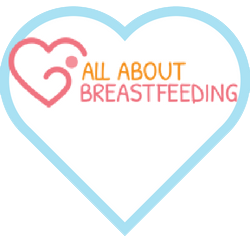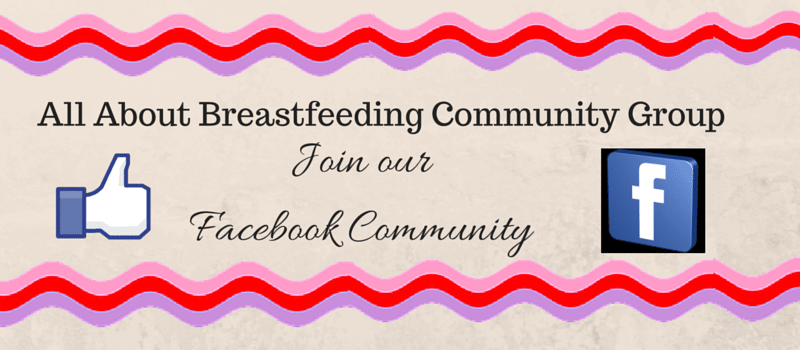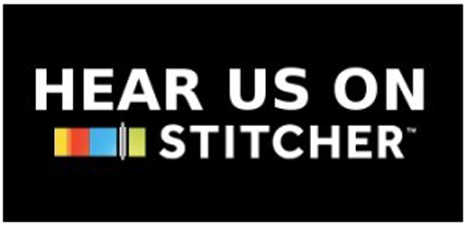Let’s get into today’s show where I am going to start off with my talking about one of my favorite subjects: The amazing Placenta. I taught childbirth education classes for 20 years and I devoted over an hour to talking about The Amazing Placenta.
Let’s start with a small recap from last weeks show when I mentioned the placenta. The placenta is an organ that can be described as a pancake s haped organ that attaches to the inside of the uterus and is connected to the fetus by the umbilical cord. It is described as being part of the fetal life support system which is composed o the placenta, the umbilical cord and the amniotic sad. The placenta produces pregnancy related hormones that help to support the growing fetus.
The umbilical cord, which is part of the fetal life support system is the life-line that attaches the placenta to the fetus. The umbilical cord is made up of three blood vessels: two smaller arteries which carry blood to the placenta and a larger vein which returns blood to the fetus. It can grow to be 60 cm long, allowing the baby enough cord to safely move around without causing damage to the cord or the placenta.
The amniotic sac which is also part of the fetal life support system, is filled with amniotic fluid. This sac is your baby’s home, gymnasium, and protection from outside knocks, bumps, and other external pressures. The amniotic sac allows the fetus ample room to swim and move around which helps build muscle tone. To keep the baby cozy, the amniotic sac and fluid maintain a slightly higher temperature than the mother’s body, usually 99.7 F.
At some point during your labor, your water breaks, the sac ruptures and this fluid leaves your body.
After you baby is born, the placenta comes away from the uterine wall and is either pushed out during a vaginal birth or manually removed when you have a cesarean birth.
After your baby is born, the cord is cut and the remaining section will heal and form the baby’s belly button.
in last weeks show, I talked about how important the placenta is and that one of its many functions is to pass on your antibodies to your baby as this helps them start of their new life with some health benefits already on board. After your baby is born, more contractions help you to push the placenta out. It had a great purpose during your pregnancy, However, once you have birthed the placenta, it can no longer pass on nutrients and antibodies to your baby. No more placenta, no more umbilical cord sending nutrients to your baby and no more amniotic sac protecting your baby.
This is where I want to pick up today’s show. The placenta is out and the breasts are in!!
Here are 3 more things you may not know about breastfeeding:
Nutrients that human milk provides – the very first being, the very first milk that you have for your baby – the colostrum. As I have talked about in earlier shows, colostrum is milk. It is a very special milk that is there for your baby for the first several days after birth. Yes, colostrum is produced in small amounts, however, do not equate small amounts with “not being enough” or not “being good enough” as nothing could be further from the truth. In fact, colostrum has every single nutrient that your newborn needs – everything. If you missed out on my show where I gave you detailed information about colostrum, you can easily learn more when you listen to Episode # 392.
As your baby grows, your breasts are hard at work. Inside this lovely mammory gland, there are a lot of changes going on and the milk begins to change as your baby grows. Colostrum the early milk, turns into a transitional milk, which again, amazingly enough provides exactly the nutrients that your baby needs for a few more weeks. As your baby grows, your smarter than smart breasts know that your babies needs are changing – your baby now needs a greater volume of milk and different nutrients than the colostrum offered and now the colostrum turned transitional milk now turns into a mature milk. While all these changes are going on, your milk volume continues to increase from starting out at just a few mls which is about a quarter of an ounce per feeding the first day of birth to 3-4 ounces per feed by the time your baby is several weeks old. This increase in volume is gradual and now is where I want to get to the Number 1 thing you may not know about breastfeeding:
Number 1: Your milk volume will increase gradually and the way this happens is by:
Frequent and Efficient milk removal. Your milk needs to come out of your breasts many times a day – 7-9 times a day, in order for the volume to increase. The more your milk is removed, the more your body will respond by gradually increasing the volume. While some mothers have a larger then average milk volume in the very early days of breastfeeding, we usually find that more mothers gradually increase their volume as their body responds to the gradual increase in their babies needs. Knowing this information will help you to relax when someone tells you that your breasts are soft and this means you don’t have milk for your baby. It is very unlikely that you will have full breasts on Day 1,2 or 3. If you do, that is fine. But if you don’t, do not worry. Remember the volume is low and it will build.
If you should pump into a bottle on the first day and use a bottle that holds 3 oz of milk, don’t expect to fill that bottle. You will likely not see any output or perhaps just a few precious drops of colostrum the first few times. ON the second day after your baby is born, you may get enough milk that it covers the bottom of the bottle – this is all very normal. Hint: If you are struggling to get any output from the pump, try hand expressing as this is my favorite and most recommended way on collecting colostrum the first few days.
This leads me to Number 2 on my list of things about breastfeeding you may not know.
Number 2: The FREE bottles of formula that are given out for newbornsare filled with way too much milk, much more than your 1 or 2 or 3 day old baby should be drinking.
Understanding the volume you start off with and how this increases, will help you avoid over feeding your baby if there becomes a medical reason to supplement your baby. Whether you are feeding your baby formula or donor human milk, if you feed your baby from a bottle, you need to monitor their intake.
Once you know the early volume of milk is low volume and understand that it is normal to start off just a quarter of an ounce or so and gradually increase each day, you will then understand why, you do need to monitor how much milk your baby drinks and match it to the approximate volume that you would be expressing. The milk from a bottle, even a slow flow nipple, comes out fast and furious from the bottle and it is very common for a newborn to overfeed if you do not limit their intake.
This is very important because too often parents who are new to breastfeeding have no idea of how much milk a newborn should be drinking on their first day of life. Or how much they should be drinking on their 2nd third and fourth day of life. New parents are handed a bottle of formula and told to feed their baby. At breast, babies control the flow and drink in an organized suck, swallow breathe pattern and it could take a newborn a half hour to get a quarter of an ounce when breastfeeding. From the bottle, babies could be heard gulping milk as it comes fast and furious and they can easily down a quart of an ounce in just a minute or two. Can you see how the tendency to overfeed babies from bottles is very high?
Number 3 on my list of things you may not know about breastfeeding?
Number 3: Here at All About Breastfeeding, I am a strong supporter of: Feed the baby and protect the milk supply. Knowing just this information alone can help save your breastfeeding relationship if you are having early breastfeeding and latch problems.
I am personally and professionally outraged at the lack of breastfeeding knowledge many care providers have about breastfeeding. Feed the baby and protect the milk supply is basic knowledge and Breastfeeding 101. I am so angry when a mother takes her baby in for a checkup and is given crappy information that has the potential to ruin her whole breastfeeding experience. I believe that all newborns and babies should be fed as much as they desire. I believe if they are not able to get their milk directly from the breast then the next best thing to do is to feed them donor milk using another method of feeding. I believe that every feeding should be a good feeding. So, making sure your baby is well fed is at the top of my list. Making sure that you are gradually increasing your milk supply is as equally important to me. I want you to “protect your milk supply.”
If your baby is struggling to get a good feeding directly from the breast & you are needing to supplement your baby, How do you accomplish the goal of increasing your supply? Breastfeeding 101 tells us the answer: You need to remove the milk on a regular and frequent basis. If this is basic information, if this is breastfeeding 101, why am I continually outraged?
For the pure and simple reason that I work with parents on a very regular basis, who have been told: Your baby has lost too much weight and you need to supplement. I have absolutely no problem with this statement. The problem I take issue with is that so often moms are told to give there baby formula and come back the next day or in 2 or 3 days for a weight check. This is ALL the information they are given… and when this happens, I want to scream
.Pity the poor mother who gets this crappy advice and does not remove the milk from her breasts on any regular basis and just keeps giving more and more formula. Typically 1 of 2 things happen.
Her body gets a very strong message right away, that it does not need to increase the milk volume. No baby suckling at the breast. No hands expressing the milk. No pump removing the milk. Well guess what – the breasts get a very strong message – there is no baby here and there is no reason to make more milk. For some mothers, this lack of milk removal in the early days can be quite devastating and the main reason she suffers from a low supply as the days go on. Her breasts said: No baby. No milk. If you are not planning on breastfeeding, no problem. If you are – quite the wrong action you want your breasts to make.
Amazingly enough, your body might respond differently. Perhaps some stimulation by a poorly latched baby or some stimulation from a few pumping sessions or perhaps your hormones are at work. In this scenario, your breasts begin filling up with milk. All of this filling without milk removal causes you to have very hard and painful breasts which are swollen and quite engorged. Many mothers have said to me: I don’t even recognize my breasts anymore – it is like they belong on a different body. They also tell me the pain is so great that it hurts to even hold their baby. This poor mom that I met with last week cried as she told me that she could not breastfeed and she could not hold her baby it was too painful. Feedings were with her husband and her mother and she said she cried every time someone else fed her baby. Can you imagine how depressing that was for her?
So, what is happening here? Well, her breasts are filling with milk and with fluid, causing all this engorgement. If we don’t get to her soon enough and help her to understand the need to pump, this will all backfire. Meaning, in a few days, it is likely that her breasts will soon get the message – no baby, no need for all this milk and what was very engorged breasts, go soft, seemingly overnight, she loses her supply. If this happens to you or has happened to you, I know that you have every tight to be angry once you learn that you got crappy breastfeeding advice.
Let’s recap what we learned today:
We started off by talking about The Amazing Placenta. You learned about the job the placenta is designed to do and how once your baby is born, that job is done with and your breasts take over the care of feeding and growing your baby on the outside. Throwing in a few more tidbits of information about how your breasts take care of some of your newborns other needs such as a baby that is tucked in to you skin to skin, well your breasts help your baby to regulate their temperature their sugar levels and help the maintain normal respiratory rates. Your breasts provide comfort and are home to your baby. All this as well as all the nutrients they need from the colostrum. Such great information and I go into this in greater depth in my breastfeeding class.
We then talked about 3 more things that you may not know about breastfeeding. In shared these 3 things in particular with you because I find that when parents do not know this information, this lack of knowledge has the potential to make breastfeeding quite challenging. ON a very positive note, when you have this information, you have the ability to take some of the early breastfeeding challenges you have and control the outcome by taking charge. With this information, you do not need to be a sitting duck.
Number 1: With frequent and efficient milk removal, your milk volume will gradually increase.
Number 2: Free bottles of formula are filled with far too much milk then your baby should be drinking and can easily lead to over feeding.
Number 3: Empower yourself with one of my favorite sayings in early breastfeeding – Feed the Baby and Protect Your Milk supply.
As I bring this Season and the year 2019 of the All About Breastfeeding podcast to an end, let’s just say that not only the whole year, but specifically the last 3 shows are my Holiday gift to you. I have spent hundreds of hours proving you with great breastfeeding education throughout the year. I have poured my heart out to you in the last 3 shows. My breastfeeding heart that is. It is all in the interest of helping you start off breastfeeding by looking forward to an enjoyable breastfeeding experience and having you feeling confident and feeling empowered, all so that you will be breastfeeding in comfort and joy. This is my New Years Wish to all of you.
Your Online Breastfeeding Class
Learn how to breastfeed – Be comfortable. Be confident.
The learning continues well beyond the average breastfeeding basics class that is 60-90 minutes. In this class, we have over 15 hours of audio lessons, combined with many hours of videos to help support what you are learning. We cover breastfeeding and medication safety, what to do if your baby does not latch on, common breastfeeding challenges, tongue tie, premature babies, building a good supply, returning to work and pumping. Take a look at the list below and follow the link to the class page so you can see more specifics of what is covered. I want to ensure that we got you covered and that you have great support well beyond the newborn days.
- Using your pregnancy time to prepare for breastfeeding
- Tips on how to prepare your home for a newborn
- Specific details about the first 24 hours after birth.
- Exactly what to expect the first two weeks after birth
- What can you do if your baby is not latching on
- Common and not so common breastfeeding challenges
- What you can expect over the next few months
- Returning to work as a breastfeeding/pumping mom
- Pumping and storing your milk
- When to begin pumping and building your freezer stash
- How to make a smooth transition to postpartum life
- Lessons dedicated to partners and breastfeeding knowledge.
- Breastfeeding and the 1 year old
- Breastfeeding the toddler and beyond
- Tandem nursing
- Breastfeeding through a pregnancy
- Medication and mother’s milk
- Weaning
Once you register for the class, you have immediate access to:
- Audio Lessons
- Videos
- Educational handouts
- Helpful checklists
- Our “members only” group
- Weekly group LIVE Q&A sessions
Gain confidence in breastfeeding.
Expert advice from Lori J. Isenstadt, IBCLC who has over 25 years of experience in maternal health and lactation. I will help you navigate the ins and outs of breastfeeding.
Listen anywhere and anytime. Imagine not having to sit in a classroom or stare at a screen. You can learn all about breastfeeding while going for a walk, driving to work or running errands, traveling on a plane, train or bus. Because you can download the audios, learning is easy and convenient. Get ready to learn anytime whenever it’s convenient for you and your partner. You can be cooking dinner together and listening to the class. Perhaps relaxing together in the evening in your comfy clothes. You can learn together. Easy access to all class materials. Your class never expires. You’ll be able to listen and download the materials at your convenience.
You are not alone!
Once you are a student in the breastfeeding class, you have regular access to ongoing support for the whole time you are breastfeeding. You can have your questions answered by Lori J. Isenstadt, IBCLC, in our private group as well as our weekly live Q & A sessions. Just check out the Bonuses below to see how I provide you with ongoing support..
Exclusive Bonus #1
Immediate access to a private group for class students only. I will be answering your questions 5 days a week.
Exclusive Bonus #2
Invitation to join our weekly Q & A session with Lori and other students.
Exclusive Bonus #3
Need additional help? *25% discount off a private consult – for students only.
*If you are in the Phoenix metro area. use this link to schedule your Office or Home lactation consult.
*If you are out of the area, use this link to schedule a Skype call
Do you have a question about the class before you purchase? Send it to – aabreastfeeding@hotmail.com
 Register for the Breastfeeding class
Register for the Breastfeeding class
http://www.aabreastfeeding.com/audioclass
Additional ways to connect with me:
Like us on Facebook HERE:
http://bit.ly/2dNPlsC
Follow us on Twitter HERE:
@breastfeedingaz
http://bit.ly/2BfEIJ2
Follow us on Pinterest HERE:
https://www.pinterest.com/lorijisenstadt
Subscribe on iTunes the All About Breastfeeding show HERE:
https://apple.co/2FJGwsV
Lori J. Isenstadt, IBCLC
 Lori Jill Isenstadt, IBCLC is a huge breastfeeding supporter. She has spent much of her adult life working in the maternal health field. Once she became turned on to birth and became a childbirth educator, there was no stopping her love of working with families during their childbearing years. Lori became a Birth doula and a Postpartum doula and soon became a lactation consultant. She has been helping moms and babies with breastfeeding for over 25 years. Lori founded her private practice, All About Breastfeeding where she meets with moms one on one to help solve their breastfeeding challenges. She is an international speaker, book author and the host of the popular itunes podcast, All About Breastfeeding, the place where the girls hang out. You can reach Lori by email at: aabreastfeeding@hotmail.com or contact her via her website: allaboutbreastfeeding.biz/contact
Lori Jill Isenstadt, IBCLC is a huge breastfeeding supporter. She has spent much of her adult life working in the maternal health field. Once she became turned on to birth and became a childbirth educator, there was no stopping her love of working with families during their childbearing years. Lori became a Birth doula and a Postpartum doula and soon became a lactation consultant. She has been helping moms and babies with breastfeeding for over 25 years. Lori founded her private practice, All About Breastfeeding where she meets with moms one on one to help solve their breastfeeding challenges. She is an international speaker, book author and the host of the popular itunes podcast, All About Breastfeeding, the place where the girls hang out. You can reach Lori by email at: aabreastfeeding@hotmail.com or contact her via her website: allaboutbreastfeeding.biz/contact
your email address will not be published






